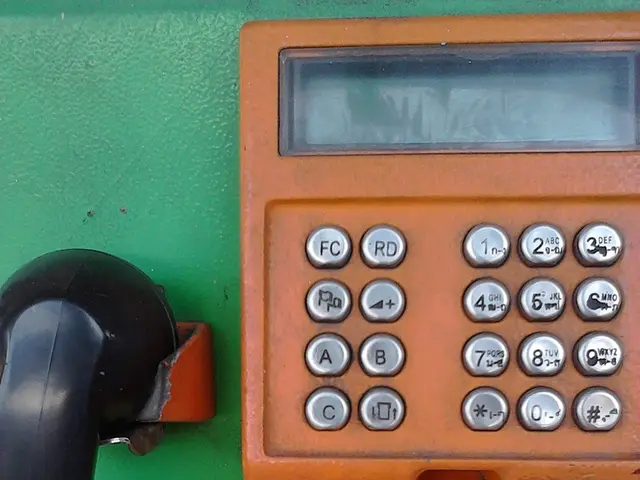Euro's Pursuit of Exorbitant Privilege: A Daring Gambit by Europe
The European Central Bank (ECB) President, Christine Lagarde, has expressed a desire for the euro to play a more significant role as an international currency. This ambition is not without its challenges, as Europe's economic realities and current account surplus pose potential hurdles.
According to data from the International Monetary Fund (IMF) and the Bureau of Economic Analysis, Europe and the euro area have typically been current account surplus countries. The largest volume of the euro area's government bond market is provided by the French market, totalling 3.3 billion euros. However, the euro's share of global exchange reserves has stabilised at approximately 20 percent, but it has not benefited from the decline in the US dollar's share.
One of the key challenges facing the euro's broader internationalization is the lack of a unified fiscal and safe asset market. Although eurozone governments borrow heavily, there is no eurozone-wide safe government-backed asset equivalent to U.S. Treasuries. This heterogeneous risk and marketability between member countries' debt (e.g., Greek vs. German bonds) undermines the euro’s appeal as a reserve currency.
Another challenge is the ECB's credibility and policy limits. The ECB’s monetary policy has historically reflected compromises aligned with stronger economies like Germany, rather than consistent eurozone-wide stabilization. This has led to doubts about the euro’s stability as a currency anchor. Post-2008 policies introduced new uncertainties affecting global confidence.
The euro's appreciation, such as the 13% increase against the dollar in 2025, has harmed European exporters’ competitiveness, indicating underlying economic challenges. Such dynamics could affect the euro’s attractiveness as a global currency used widely in trade invoicing and reserves.
Competition from the U.S. dollar and geopolitical factors also pose a threat. Despite the euro’s recent appreciation and increased reserve share, the U.S. dollar remains dominant due to the size of its safe asset market, geopolitical stability, and institutional credibility. Rising international competition, including from China, may influence currency dynamics, but the euro faces internal hurdles to challenge dollar dominance.
President Lagarde believes that Europe has all the elements it needs to produce a similar cycle as the US, but she emphasizes the need for domestic economic reforms. She outlines reforms including completing the Single Market, enabling start-ups, reducing regulation, and building the savings and investment union.
Attempts to finance European public goods with jointly issued bonds, as proposed by President Lagarde, will undoubtedly lead in the right direction. This could increase the supply of truly European safe assets, addressing one of the key challenges facing the euro's internationalization.
However, the potential challenges for the euro to become a greater international currency, given Europe's economic realities and its current account surplus, include structural and political fragmentation, lack of a unified fiscal and safe asset market, and credibility concerns about the ECB. Overcoming these hurdles will be crucial for the euro to realise its potential as a global currency.
References:
- "The Euro as a Reserve Currency: An Overview." European Central Bank, 10 June 2019, www.ecb.europa.eu/pub/pdf/other/theeuroasareservecurrency201906en.pdf.
- "The Euro as an International Currency: Challenges and Opportunities." Bruegel, 10 June 2019, bruegel.org/2019/06/the-euro-as-an-international-currency-challenges-and-opportunities/.
- "The Euro as a Reserve Currency: Advantages and Disadvantages." Investopedia, Investopedia, 13 Mar. 2020, www.investopedia.com/terms/e/euroasareservecurrency.asp.
- "The Euro's Role as a Reserve Currency: Challenges and Opportunities." European Parliament, 22 Jan. 2019, www.europarl.europa.eu/RegData/etudes/IDAN/2019/612948/IPOL_IDA(2019)612948_EN.pdf.
- "The Euro as a Reserve Currency: A Review of the Literature." European Journal of Political Economy, Elsevier, 1 Mar. 2020, www.sciencedirect.com/science/article/pii/S0176268019301583.
- The lack of a unified fiscal and safe asset market within the eurozone, as well as concerns about the ECB's credibility and policy limits, are challenges that hinder the euro's internationalization and its ambition to become a recognized reserve currency.
- Attempting to increase the supply of truly European safe assets through jointly issued bonds, as proposed by President Lagarde, may help address one of the key hurdles in the euro's effort to become a more significant global currency, overcoming the disparities in risk and marketability between European countries' debt.





